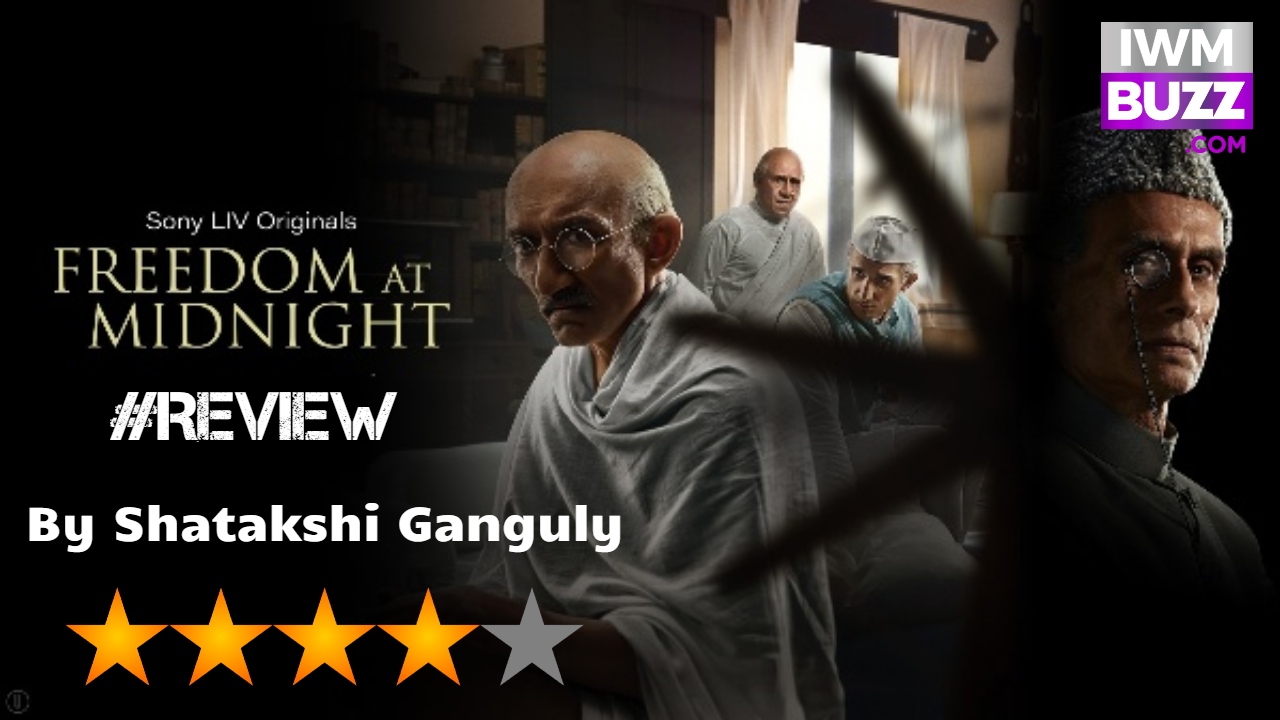Nikhil Advani’s Freedom at Midnight is a monumental series that brings to life one of the most pivotal moments in world history—the partition of India and the end of British rule in 1947. Adapted from the bestselling book by Larry Collins and Dominique Lapierre, this historical political thriller is a vivid portrayal of the last year of the British Raj, and it unflinchingly delves into the complex socio-political landscape that shaped the fate of a nation.
The series explores the multifaceted dynamics that culminated in the partition—an event that tore the subcontinent and left scars that continue to resonate today.
The narrative unfolds through the lives of the central figures at the forefront of the independence movement: Mahatma Gandhi, Jawaharlal Nehru, Sardar Vallabhbhai Patel, and Muhammad Ali Jinnah. Through a carefully woven tapestry of personal and political conflicts, Freedom at Midnight navigates the intricacies of power, religion, and diplomacy in a time when the fate of millions hung in the balance.
Advani, known for his meticulous attention to detail, brings an authenticity to the screen that is both impressive and plausible. The period setting is meticulously recreated, from the grandeur of the Viceroy’s palace to the simplicity of Gandhi’s ashram, and the dialogue captures the historical nuances without ever feeling forced.
This is no superficial retelling of history—it is a deep exploration of the emotions, ambitions, and moral dilemmas that guided the actions of its key players.
At the heart of the series is a careful balance of the personal and the political. The portrayal of the characters is striking in its depth and emotional resonance. Sidhant Gupta shines as Jawaharlal Nehru, embodying the complexity of a man who was both a visionary and a pragmatist. Chirag Vohra’s Gandhi, with his unyielding moral clarity, is every bit the figure of reverence he has been immortalized as.
However, Arif Zakaria’s portrayal of Muhammad Ali Jinnah truly stands out—capturing the nuanced melancholy of a man who sought to create a separate nation, driven by ambition and a profound sense of duty to his people.
The supporting cast is equally strong, with Rajendra Chawla’s portrayal of Sardar Patel adding an extra layer of gravitas to the series. Lady Edwina Mountbatten, brought to life by Cordelia Bugeja, adds a human element to the story, reminding us of the personal sacrifices made by those involved. Meanwhile, the figure of Lord Louis Mountbatten, as played by Luke McGibney, is rendered with great care, emphasizing his role not just as a political actor but as a man caught in the throes of a changing world.
What’s to cherish? Its unapologetic focus on historical accuracy.
The Partition of India, one of the bloodiest and most contentious events of the 20th century, is presented without embellishment. The complexities surrounding the division of the subcontinent are explored with a frankness that is both sobering and enlightening. The religious and socio-political dynamics of the era are presented with nuance, making it clear that the creation of two nations was as much about identity and belief as it was about politics.
For history enthusiasts, this series is a goldmine.
It is not simply a recounting of well-known events but a window into the personal struggles of the key figures who shaped the destiny of India. Freedom at Midnight brings these figures to life in a way that few period dramas can, weaving together the political with the deeply personal and offering viewers an understanding of the historical forces that shaped the world as we know it today.
Advani’s Freedom at Midnight is a brilliant and evocative portrayal of one of the most transformative periods in Indian and world history.
With a stellar cast, meticulous production, and an unwavering commitment to authenticity, it is an absolute must-watch for history enthusiasts and anyone interested in understanding the complexities of India’s struggle for independence.
Through its narrative, the series not only pays tribute to the luminaries of the Indian freedom movement but also invites us to reflect on the profound cost of freedom—one that still reverberates through the lives of millions today.
IWMBuzz rates it 4 stars.

